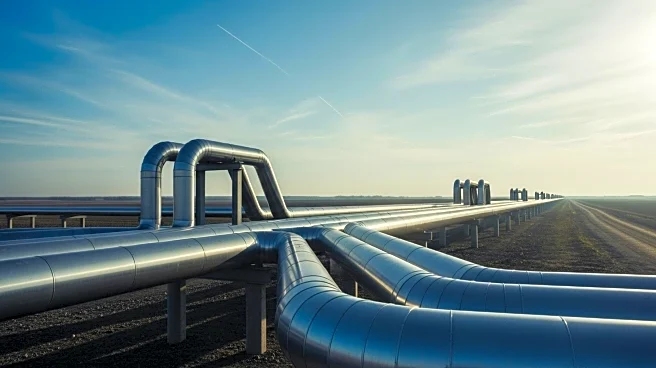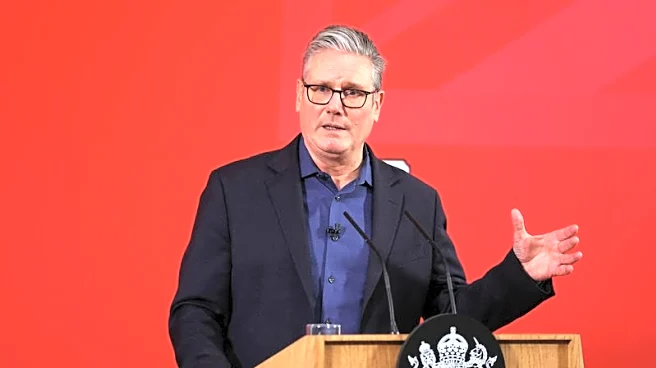What is the story about?
What's Happening?
Summit Carbon Solutions is facing challenges with its carbon dioxide pipeline project, originally intended to sequester emissions in North Dakota. Due to South Dakota's ban on the use of eminent domain and the state's rejection of Summit's permit application, the company is exploring alternative sequestration sites in Nebraska, Wyoming, Colorado, and Kansas. Summit has requested Iowa regulators to amend its pipeline permit to consider these new destinations. The company aims to transport carbon dioxide from ethanol plants in Iowa and other Midwestern states, liquefy it, and store it underground. The project, valued at $9 billion, is designed to reduce the carbon footprint of ethanol production and qualify for federal tax credits. However, the plan faces opposition from landowners and environmental groups, who are challenging the permit in court.
Why It's Important?
The outcome of Summit's pipeline project has significant implications for the ethanol industry and carbon sequestration efforts in the U.S. If successful, the pipeline could lower the carbon footprint of ethanol, making it more competitive and eligible for federal incentives. This could benefit farmers, ethanol producers, and rural communities by expanding markets and supporting sustainable practices. However, the project also raises concerns about the use of eminent domain and the environmental impact of pipeline construction. The legal challenges and regulatory hurdles highlight the complexities of balancing economic development with environmental protection and property rights.
What's Next?
A decision from the Polk District Court is expected within weeks, which will determine whether the case will be reviewed judicially or sent back to the Iowa Utilities Commission for further consideration. If the permit is amended, Summit may proceed with exploring alternative sequestration sites, potentially leading to new regulatory processes and hearings. Stakeholders, including landowners, environmental groups, and state regulators, will continue to play a critical role in shaping the project's future. The decision could set precedents for similar infrastructure projects and influence public policy on carbon sequestration and eminent domain.
Beyond the Headlines
The debate over Summit's pipeline project underscores broader issues related to energy transition and climate change mitigation. As the U.S. seeks to reduce greenhouse gas emissions, projects like Summit's pipeline are pivotal in achieving national and global climate goals. However, they also highlight the ethical and legal challenges of implementing large-scale environmental solutions. The controversy may prompt discussions on the rights of landowners, the role of government in facilitating infrastructure projects, and the balance between economic growth and environmental stewardship.

















